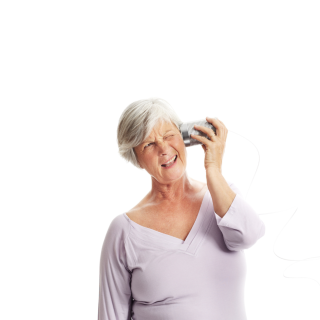Posted Wednesday November 27, 2019
There are different tests for different purposes and hearing conditions. Your audiologist will advise you which type of appointment is most suitable for you.
How do you prepare for a hearing test?
If you have significant wax in your ears, it will need to be removed before the test. Also, let the audiologist know if you, or your child, have recently had a cold or ear infection as this could interfere with the results.
Talking about your medical history
During a hearing assessment, your audiologist will want to talk to you about your medical history. An underlying health issue or genetic condition may account for, or contribute to, any hearing loss that you’re experiencing. So, bring any significant medical records and be prepared to answer some questions about your lifestyle and health to date.
There are 3 main types of hearing test appointments:
1) Initial hearing screening
A hearing screening will tell you if you have a hearing problem (or reassure your family that there’s nothing to worry about).
How long does a hearing screening take?
A hearing screening is a shorter type of hearing test and takes just 15-20 minutes. This type of appointment gives your audiologist a broad idea of your overall hearing sensitivity. If the screening shows that you have an issue, the next step is a full hearing assessment.
Who can have a hearing screening?
A hearing screening is not suitable for children younger than 16 years of age as it relies on accurately communicating your hearing responses – children are more suited to full diagnostic hearing tests.
2) Complete hearing assessment
A full hearing assessment is a diagnostic process that tells your audiologist why you can’t hear certain sounds. This process uncovers what type of hearing loss you’re experiencing and helps your audiologist form an appropriate treatment plan.
How long does a diagnostic hearing assessment take?
A full hearing assessment takes at least 30 minutes. Your audiologist will talk you through a selection of detailed audiology tests including tones and speech, checking your outer ear canal, and measuring the health of your eardrum and middle ear.
Can a hearing test detect tinnitus?
If tinnitus is an issue, further diagnostic hearing checks will be conducted.
Who can have a full hearing assessment?
Hearing assessments are suitable for all adults and children who are at least 2½ years old. There is a special hearing screening process for newborns which is usually done before you take your baby home from the hospital.
3) Auditory processing tests
If both the hearing screening and assessment show normal test results, but a person still reports difficulties hearing, the next step is an auditory processing test. This puts the auditory system under strain by mimicking difficult, noisy environments such as classrooms or restaurants. This allows the audiologist to check how well the inner ear and brain are responding to auditory stimulus.
How long do auditory processing tests take?
Auditory processing tests take over an hour to complete and the results are compared against ‘normative’ test results. If problems are identified, you will be given advice and remedial tasks to minimise your difficulty with hearing in noisy environments.
Are there any side-effects or complications from hearing tests?
Hearing tests are very safe. There are no dangers or inherent side effects.
In fact, there are some groups in society who benefit from regular hearing assessments. These include people whose occupations or recreational activities expose them to unsafe noise levels, or put pressure on their ears.
In some industries, such as civil aviation, all staff (including engineers, pilots, aircrew and air traffic control) must have regular hearing tests.
It is a wise move to have a baseline hearing assessment and serial audiograms. This lets your physician set a norm and later track the effectiveness of hearing protection or changes over time.
If ever you need to open an ACC claim for hearing loss, these audiograms will provide crucial evidence of how age, noise at work, or loud hobbies have impacted your hearing. Without this ‘evidence’, it may be more difficult for ACC and specialists to accurately assess how noise in your industry has affected your hearing.
There are also some medicines that can affect the inner ear. Regular hearing tests help monitor how drugs affect a patient’s hearing so the physician can assess whether the dosage can be modified without impacting the therapy.



